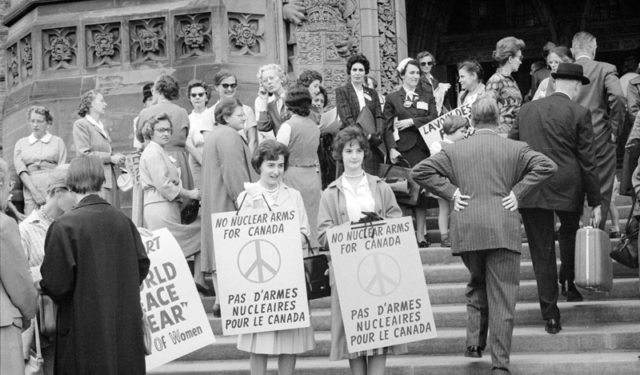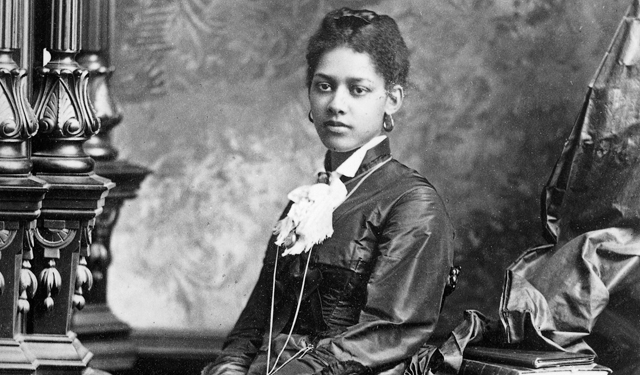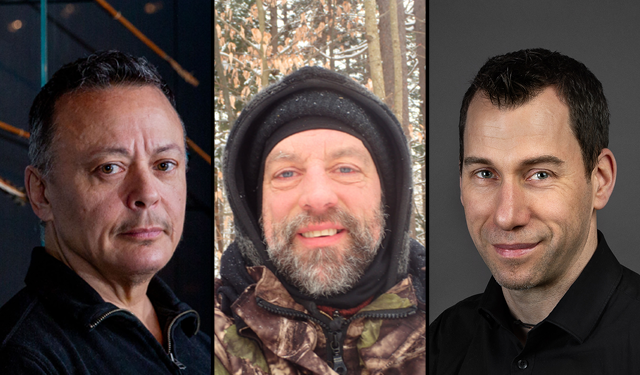La nuit des idées
Transcending Fault Lines: Crossroads of Artistic Creation Outside the West
April 24, 2024
Each year, La Nuit des idées invites participating cultural organizations to come up with multidisciplinary programming around a shared theme. In 2024, “fault lines” is an invitation to question the instability, misunderstandings and fractures that run through our society.
In this evening of exchange, artists and researchers from diverse backgrounds will discuss how contemporary artistic creation from outside the West overcomes individual and collective trauma, heals wounded memories and helps transcend fault lines.
The round table discussion take a cross-disciplinary look at the evolution of art forms, their reappropriation and their projection into the future. From exploring new forms of expression to reflecting on the social impact of art, this evening promises stimulating conversation and inspiring perspectives.
Event co-organized with the Consulat général de France à Québec and Institut Français
Information
Activity in French, presented on Wednesday, April 24.
Biographies
MORIDJA KITENGE BANZA
Moridja Kitenge Banza is a Canadian artist of Congolese origin, born in Kinshasa in 1980 in the Democratic Republic of Congo. He is a graduate of the Académie des Beaux-Arts de Kinshasa, the École Supérieure des Beaux-Arts de Nantes Métropole and the Faculty of Human and Social Sciences at the Université de La Rochelle. In 2010, he was awarded 1st prize at the DAK’ART Biennial of Contemporary African Art for the video Hymne à nous and his installation De 1848 à nos jours, and in 2020 he received a Sobey Award. The Art Gallery of Ontario, the McMichael Museum and the Phi Foundation have presented his solo exhibitions. The Musée d’art de Joliette will present a solo exhibition by Kitenge Banza in 2024. The artist’s works can be found in the collections of the Montreal Museum of Fine Arts, the Musée d’art contemporain de Montréal, the Musée national des beaux-arts du Québec, the National Gallery of Canada, the Art Gallery of Ontario and numerous corporate collections.
Nicolas Renaud
Nicolas Renaud is a visual artist and filmmaker based in Montreal. Since the 1990s, he has made installations, experimental films and documentaries shown in Canada, the USA and Europe. The film Brave New River (La Nouvelle Rupert) earned him the Emerging Filmmaker Award for best 1st feature-length documentary film at Hot Docs 2013 in Toronto. He is also an Assistant Professor in Indigenous Studies at Concordia University, where his research and teaching are focused on Indigenous ecologies, Iroquoian cultures, wampum belts, and the relationship between Quebec society and Indigenous peoples. He is of mixed Québécois and Indigenous heritage and is a member of the Huron-Wendat First Nation of Wendake.
Keywa Henri
Keywa Henri, born in Kaulu (Kourou) in “French Guiana,” is of French and Brazilian nationality. In 2022, they were the first Kalin’a Tɨlewuyu (Indigenous people of “French Guiana”) artist to graduate from the Beaux-Arts de Lyon. Their practice investigates the field of animation, while reflecting on the existences and stories of the Original Peoples of Abya Yala (the “Americas”). In addition to working in fashion and film, Keywa was the winner of the ONDES 2023 artistic residency program offered by the Cité Internationale des Arts in Paris. Keywa weaves together aesthetic, identitarian, social and political thought, articulating an Indigenous and decolonial perspective that works towards Indigenous empowerment.
Jean-Philippe Uzel
Jean-Philippe Uzel is Professor of Art History at the Université du Québec à Montréal (UQAM) and Director of GRIAAC/CIÉRA Montréal, an interdisciplinary research group devoted to Indigenous studies. His field of expertise is the history and theory of modern and contemporary art, with a particular focus on the relationship between art and politics. It is from this angle that he has been interested in contemporary North American Indigenous art for the past 25 years. He recently piloted the MOOC (Massive Open Online Course) Ohtehra’, l’art autochtone aujourd’hui, the fruit of a partnership between UQAM and the Montreal Museum of Fine Arts (the MOOC is offered on the FUN-France Université Numérique platform until November 2024). He is also a member of the international research team Des nouveaux usages des collections dans les musées d’art. In recent years, he has published a number of articles on cultural appropriation in Canadian and French journals and is preparing a book on the subject to be published in 2025.
Marie-Laure Josselin
Marie-Laure Josselin is a nomadic journalist who loves travelling the world and meeting people. She studied communications and journalism at Université Laval and holds a master’s in international journalism. Originally from France, she lived in Belgium, Polynesia and Canada, and then took a one-way flight to Dakar, where she worked for various French, Swiss, Belgian and Canadian media outlets for eight years. In 2010, she settled in Quebec to work for Radio-Canada and several European media outlets. Working mainly for radio, she developed a beat covering Indigenous issues. In 2020, she was appointed as feature reporter for Radio-Canada’s Espaces Autochtones. Since then, she has reported solely on Indigenous issues and communities. From the politician to the fisherman, from the artist to the local land activist, her microphone has taken her to several countries to meet people with a story to tell.



